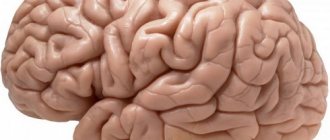Music is needed
There is no need to be afraid that something is wrong with you if the musical accompaniment performed by your favorite band has become frequent while you are doing some kind of work. Perhaps your music is very rhythmic and helps you get things done faster. Instead of searching for the name of music addiction, just do your thing and enjoy it.
Favorite compositions help you experience joy, so take advantage of this property! Most likely, you are a normal person and will soon hear enough of it and be fed up with it. Then a certain musical saturation will come, and the need to listen to these particular compositions will definitely go away.
Is it possible to consciously become a music lover?
Becoming a music lover is not easy. There is no specific system or structure that would allow you to become a music lover in a matter of minutes.
The easiest way (although it requires quite a lot of time) is to make a list of the musical compositions you like (the main thing is that they are of different styles).
Start expanding your musical horizons by studying the work of different artists (not just world stars). With the help of the Internet this will not be difficult. If it was not possible to find something new in the vastness of the World Wide Web, then no one canceled libraries.
What is music addiction called?
While listening to music, a certain hormone is produced in the brain - dopamine. This pleasure hormone is the culprit of all human attachments and preferences. He is also responsible for our immeasurable love for delicious foods or good books. Dopamine controls all human pleasures. A hormone that lifts your mood while listening to your favorite track contributes to improved quality of work performed. The problem of the influence of music on humans is currently being studied by scientists from different countries.
However, the human body is not very easy to “take apart” psychologically. For an ordinary person who is inexperienced in such sciences, who loves loud and aggressive rock or calm and relaxing music with the sounds of nature, it is actually not very important what the great scientific minds have come up with. There is only him and the music.
Some people are literally ready to sleep with headphones on - and they do. And they also walk down the street to the music and, in addition to household chores, to the music they can engage in more complex activities that require increased concentration. If the path to music is “cut off” for these lovers of melody, they may experience very unpleasant conditions. We will now find out what addiction to music is called and how it manifests itself. Music lover is a familiar word to everyone, and maybe the symptoms are familiar too?
How different genres of music affect the human psyche
Specialists from the US Department of Homeland Security conducted a music experiment, which confirmed that music helps cope with stress. The study was based on combinations of different frequencies, durations and amplitudes of tracks that were turned on to the subjects, observing the transition of their state from tension to relaxation. Most of the soothing compositions were variations of classical pieces close to the music of Chopin. Such works reduced the level of cortisol in the blood and had a sedative and analgesic effect. But Mozart’s music and similar compositions activate attention and improve concentration.
According to a report from Stanford University Medical Center, music affects areas of the brain associated with concentration and memory development. In this case, peak brain activity occurs during periods of silence between sounds - the relaxed brain instantly starts working. Scientists conducted the study using functional magnetic resonance imaging. They tracked which parts of the brain were most active. Music of the Baroque era, written 200 years ago, helps a person collect his thoughts and process a large flow of information. Those who listened to Mozart sonatas increased their intellectual scores. People remembered new information better and were less biased in solving an unfamiliar problem. In the groups of participants listening to “Fur Elise”, such obvious changes were not observed, so the results of the experiment were called the Mozart effect.
Music increases dopamine production
The hormone dopamine is produced as a reward for achieving goals and helps create a good mood. Listening to music you enjoy activates the reward system in your brain just as much as eating sweet, fatty foods or spending time with loved ones.
Music also helps you feel sad without consequences. Music psychologist Stefan Koelsch from the Free University in Germany concluded that listening to sad music has a positive effect on empathic qualities and helps a person cope with problems. In his opinion, the listener associates himself with the performer, empathizes with him, and at this time the brain regulates emotions, allowing excess negativity to be thrown out. Moreover, such sadness does not cause consequences on a par with real sadness that arises in difficult situations. Thus, sad music promotes the experience of pain without harm to psychological health.
Throw out negative emotions
Good news for fans of heavy music like heavy metal: a study at the University of Queensland in Australia confirmed that such music causes an outburst, not a buildup of aggression. The experiment involved 39 people, who played punk rock, screamo and metal. The researchers asked participants questions that might make them angry. If the music was playing half the time of the interview, it was turned off and turned on again several times in a row. While listening to the tracks, people calmed down faster. According to scientists, their attention switched to another object, which made it possible to splash out aggression not on the interlocutor, but in musical perception. Understand the other person.
Psychology professor Kelly Schwarze argues that fans of heavy music are independent individuals, but many of them tend to have low self-esteem and doubt their choices. Fans of popular music, according to Kelly, know how to keep their emotions under control; they seek a balance between their own desires and the opinions of others. And those who prefer different styles are able to quickly adapt to the situation and prefer to avoid conflicts.
Share with your friends:
Stay with us. Add us to your sources and we will make sure that you read only interesting and proven content
My Sources in Yandex News My Sources in Google News Subscribe to the channel in MirTesen Subscribe to the channel in Yandex Zen Subscribe to the channel in Telegram Read our news on Twitter
How to recognize addiction
Look around and pay attention to yourself. You are a dependent person if:
- listen to music more than four hours a day;
- your mood deteriorates and irritability appears when there is no music;
- Listening to one song multiple times is normal for you;
- you are aggressive when someone dares not support you in your musical preferences;
- there is a desire and craving to listen to compositions in any, even inappropriate, place.
One or more points that coincide with your realities indicate that you have a music addiction. Any addiction must be stopped or destroyed before it completely takes over the state and psyche of a person.
Description of music addiction
Many people love to listen to music. Among them there are individuals who cannot live a single day without it. They are ready to listen to their favorite melodies almost 24 hours a day. This addiction is called music addiction. The word “music lover” began to be used in speech from the moment when the first audio recordings and the ability to collect them appeared. Originally, music lovers were music lovers who were avid collectors of vinyl records, tapes, cassettes, etc.
Record collectors and music fans were originally called audiophiles.
How to remove a dependent state?
First of all, you need to realize that music is not the whole world. There are close people, friends and relatives who need to communicate with you. Don't run away from reality into her world. Or rather, don’t dive into it so seriously and deeply. Life is here. Here are actions to help mitigate or completely overcome addiction:
- limit the time you listen to compositions and songs;
- be more active on vacation and when communicating with friends;
- do not take musical gadgets for a walk - listen to the sounds of the city or nature;
- Remember that music in headphones distracts attention, volume has a particularly strong effect.
If you feel that you can’t cope on your own, don’t hesitate - contact a specialist.
Why do we like different music?
Firstly, not everyone likes music, which is difficult to predict. That's why not everyone likes jazz.
Secondly, we think differently. British psychophysiologist Simon Baron-Cohen divided people according to their ways of thinking into systematizers and empaths.
The first tend to analyze.
The latter can decipher emotions well.
Therefore, systematizers usually like music in which patterns and a clear rhythmic pattern can be traced. This is, for example, rock.
Empathic people choose the exact opposite. They prefer lounge, jazz, ethno. This is music that has no clear rhythm.
Systematizers also like to classify compositions by style. Empaths perceive music holistically.
People who love jazz are known to be open to new experiences. Usually they have either a musical education or experience listening to music, because such music requires more thoughtful listening.
Correction methods
If you have identified signs of music addiction, then you need to get rid of them so that music addiction does not become a serious problem for you. To do this, you need to develop an action plan that will help you get rid of music addiction:
- Limit your time listening to music. This should happen gradually. Every day, reduce the time spent listening to sound by 30 minutes.
- It makes no sense to get rid of headphones, since you will still have the desire to buy them, but try to reduce the use of this gadget to two hours a day. When going out with your phone, leave your headphones at home - this will reduce the time you spend listening to your favorite songs.
- A new hobby will help you take your mind off your music addiction.
- Walks in nature, new fun friends who won't let you get bored and won't let you use your headphones.
- Count the money you spend on new music. The total amount spent on this hobby will shock you and may stop you from making further thoughtless purchases.
- Be aware of the health risks associated with using headphones. Constant exposure to loud sounds on a person's hearing system has a negative impact on hearing.
Any addiction, even something as harmless as music addiction, brings discomfort to an individual’s life.
Quitting listening to music after years of using it can be very difficult. But such an addiction can become a manic addiction.
Every effort must be made to get rid of this problem. Music should be a source of pleasure, not an object of worship.
The influence of classical music on physical performance and productivity
Favorite music makes it easier to move, walk, dance and other exercises that you do, turning them from work into pleasure. Moreover, music can improve athletic performance, for example, while running. This influence of music is explained by:
- decreased fatigue;
- an increase in the level of psychological arousal;
- improving coordination of movements.
Work productivity can also be improved by listening to classical music, as it effectively relieves symptoms of fatigue caused by monotonous work. However, for maximum effect, it is better to alternate musical genres.
Research also shows that listening to classical music or rock increases a person's ability to recognize pictures, including letters and numbers, faster.










